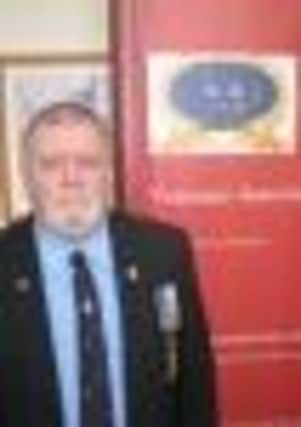Ex-soldier’s post-traumatic stress nightmare


Trevor’s military role in the 1970s had a whole series of horrors. He was sexually assaulted by a corporal, bullied by fellow soldiers and was made to guard the body of an IRA armed robber he had himself shot dead after the criminal had tried to shoot Private Cable.
Mr Cable (61), a former newspaper photographer who lived in Barrowford but now lives in Burnley, joined the Army in 1969 when he was 18. After his training, he was attached to the Queen’s Lancashire Regiment, which had just been established.
Advertisement
Hide AdAdvertisement
Hide AdIn fact, he was the first soldier in his battalion to wear the new cap badge. He said: “When I was joining with A Company, the two regiments had just been amalgamated and the soldiers didn’t get on with me or like me. In the first two weeks I was a loner.”
On one occasion, a fellow soldier beat Private Cable’s head while other soldiers laughed at him.
On another, a corporal persuaded him to go out to a pub. He later found himself naked on a bed and being sexually abused. He reported the issue to the guardroom, which resulted in the corporal facing a court martial. He pleaded guilty and was kicked out of the Army. Mr Cable said: “I didn’t even realise people were like that in the Army.”
In 1970, Private Cable was sent to Northern Ireland on an emergency tour and dealt with several riots. On a later tour in 1971/2 he was fired at by the IRA.
Advertisement
Hide AdAdvertisement
Hide AdOn another in 1973, he was on duty in the Royal Victoria Hospital when a nurse screamed that a bank raid was taking place.
There were four IRA gunmen involved and as he entered one of the men tried to shoot him and he fired back. He said: “I didn’t then get support after what happened. I was then left alone to guard the man’s body in a cleaning cupboard for 20 minutes.” And he added: “I was put in for a medal, but I refused the medal so it wouldn’t affect me in the future.”
He was also upset by the death of Private Gary Barlow, a 19-year-old who had been left on the streets on duty on his own. He was surrounded by women and then killed by an IRA man.
The effects of horrific incidents and bullying resulted in post-traumatic stress disorder, which kicked in in the 1970s and has affected Mr Cable ever since.
Advertisement
Hide AdAdvertisement
Hide AdHe said: “They used to shout at me for having nightmares! I can never go to reunions, although I have been to a couple of funerals.”
Mr Tony Hayes, chief executive of VAUK, said: “I want to stop this happening in future, but also people responsible in the past should be brought to book. They are responsible for Private Barlow’s death on the street. Whoever was leading this patrol is responsible for Gary’s death.
“Trevor suffered bullying for seven years. In 1973 when he was affected and Private Barlow died, four soldiers from the regiment hanged themselves.
“The system has improved since then but more needs to be done.
Advertisement
Hide AdAdvertisement
Hide Ad“I’ve had no chance whatsoever to take this up with the Ministry of Defence. I have rung the office of Welfare and Veterans’ Minister the Rt Hon. Andrew Robathan but he refused to speak to me. But I am going to take it up with them again.”
Mr Hayes, who also served with the Army in Northern Ireland, added: “I do not believe it is right for people to be left on their own in an area like that.”
He pointed out that the Deepcut hanging and shooting suicides in the late 1980s and early 1990s highlighted the problems of bullying.
VAUK is now a registered limited company by guarantee and is working with the Royal British Legion at top level.
Mr Charley Brindle, an ex-Royal Engineer who is now a senior regional co-ordinator for VAUK as well as vice-president of the Legion’s Brigg Branch in Yorkshire, is taking the issues up with his MP.